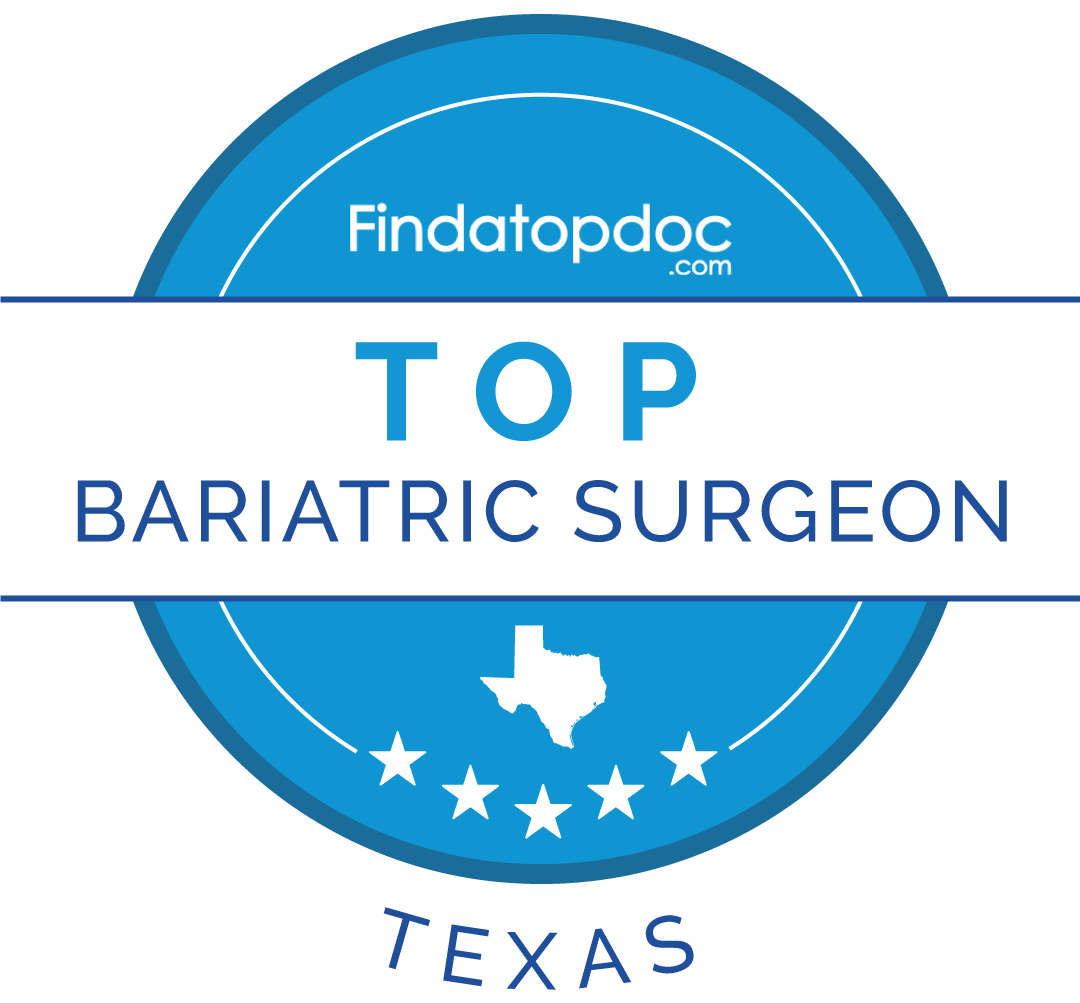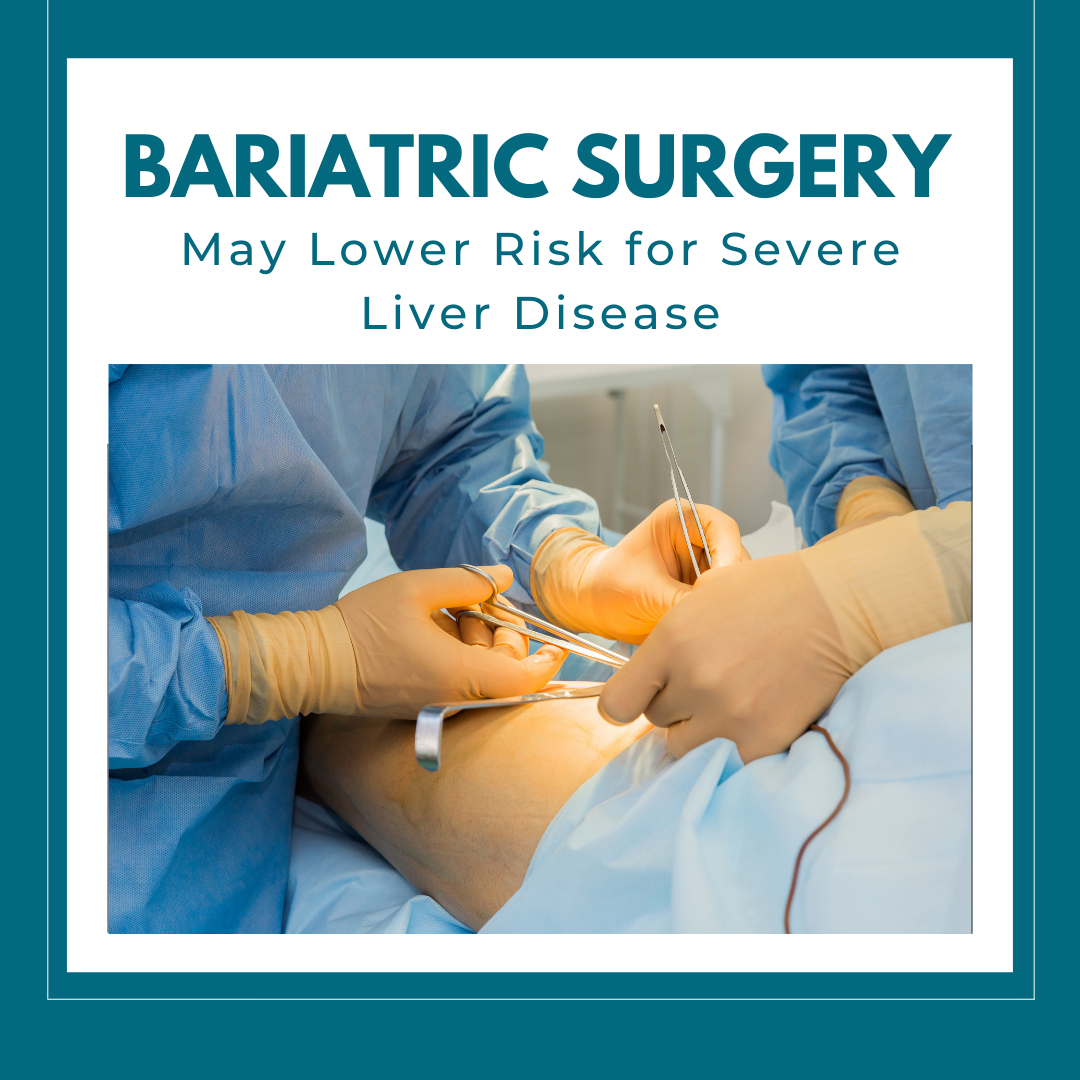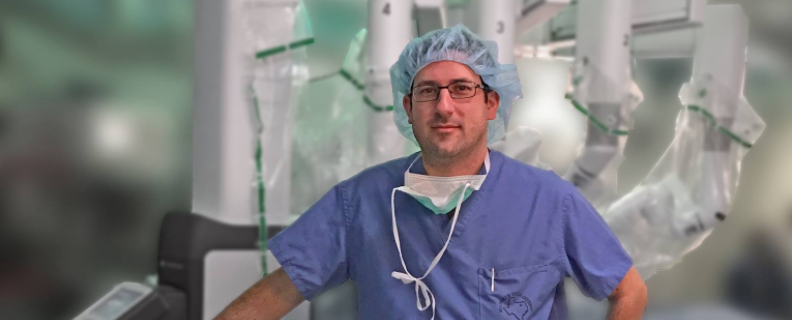

Dr. Michael Sutker, MD
Surgeon
7777 Forest Ln Suite A 331 Dallas TX, 75230
About
Dr. Sutker has been in practice at Medical City Dallas since 2014 and at Medical City McKinney since 2019. He is board-certified in general surgery. Dr. Sutker manages a wide range of surgical diseases. He specializes in treating conditions with minimally invasive techniques utilizing both standard laparoscopy and robotic-assisted laparoscopy. Dr. Sutker has specialty training in the surgical treatment of obesity, acid reflux, esophageal motility disorders, and paraesophageal hernias. He is skilled in the repair of abdominal wall defects, including inguinal, umbilical, ventral, and incisional hernias. Dr. Sutker also enjoys managing emergency surgical situations including gallbladder disease, appendicitis, and diverticulitis.
Dr. Michael Sutker, MD's Videos
Education and Training
MD at the University of Texas Southwestern Medical Center
Board Certification
American Board of Surgery
Provider Details

Dr. Michael Sutker, MD's Expert Contributions
Tips For Weight Loss - By Dr. Michael Sutker
Tip 1 - Do Not Eat After 8 PMMy Recommendation - Many patients consume unnecessary calories late in the day prior to bed. Some patients suffer from Night Eating Disorder. Cutting out these calories can help with weight loss.Tip 2 - Avoid Beverages With CaloriesMy Recommendation - Beverages with...
What Makes Dr. Sutker Stand Out?
Dr. Michael Sutker is the Medical Director of Robotic Surgery and the Chair of the Advanced Clinical Advisory Board at Medical City Dallas Hospital, where he’s been practicing since 2014. There, he is also a member of the General Surgery Performance Improvement and Intensive Care Unit...
Meet Michael Sutker, MD: Dallas's General & Bariatric Surgeon
Dr. Michael Sutker is the Medical Director of Robotic Surgery and the Chair of the Advanced Clinical Advisory Board at Medical City Dallas Hospital, where he’s been practicing since 2014. There, he is also a member of the General Surgery Performance Improvement and Intensive Care Unit...
Minimally Invasive Hernia Repair
Hernias are extremely common, especially in the abdominal area, and could also be present and undetected at birth. They occur when tissue pushes through a muscle’s weak spot.For qualifying patients, minimally invasive hernia repair is a great alternative to more invasive, open hernia repair. The...
Understanding Bariatric Surgery: FAQs
The decision to undergo bariatric surgery is not an easy one.Thinking about undergoing bariatric surgery or know someone who is? Here are some FAQs that might help.When is someone eligible for bariatric surgery?Since there are no two overweight people that are exactly the same, there is no general...
Is liver biopsy done under local anesthesia?
Usually it can be done with local anesthesia alone. READ MORE
What is the most common treatment for gallstones?
If you have symptoms related to your gallstones (typically- right upper quadrant pain, nausea, bloating), surgery to remove the gallbladder is the recommended treatment. READ MORE
How long are you in hospital after appendix surgery?
If your appendix has not ruptured or burst, many patients can go home the same day as surgery. If not, most patients spend 1 night. READ MORE
What kind of anesthesia is used for groin lipoma removal?
Depending on the size, general anesthesia or local anesthesia may be used. READ MORE
What sedation is used for thyroid surgery?
General anesthesia, not sedation. READ MORE
What type of sedation is used for an appendectomy?
General anesthesia, not sedation. READ MORE
What type of sedation is used for gallbladder surgery?
General anesthesia, not sedation. READ MORE
Does colon surgery require general anesthesia?
General anesthesia, not sedation. READ MORE
Right abdominal pain?
I would recommend seeking medical help immediately. I would be concerned about a problem with your gallbladder or liver that is causing jaundice (yellowing of the eyes). This is not something that should be ignored. READ MORE
What should you eat once your gallbladder is removed?
I generally recommend avoiding fatty, greasy, and oily foods during the recovery phase after surgery. Do not stop for fast food on your way home from the hospital. Those types of foods may cause nausea, bloating, and diarrhea (called post-cholecystectomy dumping). These symptoms typically resolve in 99% of people within 3 months. Long-term, you should not need to restrict your diet. READ MORE
How long is bed rest after gallstones surgery?
Bed rest is not recommended. That being said, you should avoid strenuous activities for a few weeks after surgery. You are encouraged to walk as much as possible. You should be safe to get in and out of bed, walk up and down stairs, and to get in and out of a car. READ MORE
Can you live a normal life after gallbladder removal?
Yes. READ MORE
What is a good position to sleep after hernia surgery?
However is most comfortable for you. READ MORE
How long is hernia surgery procedure?
Generally 30-90 minutes depending on the location and size. READ MORE
Is it normal to have pain after hernia surgery?
Yes. I usually prescribe 5 days of pain medication, although many patients do not need to take it for that long. Soreness and discomfort will persist for at least 2 weeks and sometimes up to 4-6 weeks. READ MORE
How quickly do you lose weight after a gastric sleeve?
A lot of depends on your starting weight. Men also tend to lose weight faster than women. I generally quote 20-40 lbs during month 1, 10-20 lbs per month during months 2 and 3, and 5-10 lbs per month during months 9-18. READ MORE
What are the side effects of colon resection surgery?
One of the main purposes of the colon is to absorb water. When part of your colon is removed, you absorb water leading to looser stools. They may also happen more frequently. Depending on how much and what part of your colon is removed will impact your symptoms. Many times, the remainder of the colon gets more effective at absorbing water, and there are no long term side effects. READ MORE
How long is recovery from abdominal surgery?
For an inguinal hernia, I tell my patients that you may feel 80% at 2 weeks and about 4-6 weeks to feel 100%. During the first two weeks, I recommend limiting activity, meaning avoiding heavy lifting (more than 20 lbs) and strenuous activities. During weeks 2-4, you can gradually increase your activity. After week 4, there are typically no restrictions. It may take the 4 weeks for your appetite to return to normal, your energy level to improve, and for the aches and pains of surgery to resolve completely. READ MORE
How do you know if you have gangrene?
From that picture, you definitely have wound separation and need to go see a physician. Gangrene (necrotizing infection) typically presents with drainage, redness, fevers, elevated heart rate, and other abnormalities. I would go to the ER if you are concerned. READ MORE
Hip bone fractures?
While not an orthopedist, I do help manage trauma patients. Surgery is actually the quicker and safer method to get people back on their feet and more comfortable. Non-operating means that your father will be bed-bound and in pain for a significant amount of time. Fractures hurt, and if they are not repaired, the ends of the bone grind on each other, causing pain. Surgery fixates the fracture to decrease the pain. Surgery also will allow him to get out of bed and be more mobile. READ MORE
Expert Publications
Data provided by the National Library of MedicineAreas of expertise and specialization
Faculty Titles & Positions
- Medical Director of Robotic Surgery Medical City Dallas Hospital 2016 - 2016
- Chair of the Advanced Clinical Advisory Board Medical City Dallas Hospital - 2016
- Chief of Surgery Medical City Dallas Hospital 2022 - Present
- Trauma Medical Director Medical City Dallas Hospital 2021 - Present
- Section Chief of General Surgery Medical City Dallas Hospital 2019 - 2021
Awards
- Top10MD 2019 Top10MD
- Top10MD 2018 Top10MD
- Top10MD 2017 Top10MD
Professional Memberships
- Texas Association for Bariatric Surgery
- American Society for Metabolic and Bariatric Surgery
- Society of American Gastrointestinal and Endoscopic Surgeons
- American College of Surgeons
- American Medical Association
- Obesity Medicine Association
Fellowships
- UC-San Francisco
Fellowships
- Minimally Invasive and Bariatric Surgery, University of Texas Southwestern Medical Center
Professional Society Memberships
- Society of American Gastrointestinal and Endoscopic Surgeons, American College of Surgeons, Texas Medical Association, Dallas County Medical Society
What do you attribute your success to?
Good training and availability
Hobbies / Sports
- Spending Time With Family
Dr. Michael Sutker, MD's Practice location
Michael Sutker, M.D., P.A.
7777 Forest Ln Suite A 331 -Dallas, TX 75230Get Direction
Michael Sutker, MD, PA
4510 Medical Center Drive 302 -McKinney, TX 75069Get Direction
Dr. Michael Sutker, MD's reviews
Write ReviewPatient Experience with Dr. Sutker
- Monica
Doctor Sutker was great and explained everything really well.
- Michael
Absolutely great!
- Ernest bore n
Great
- Morgan
I came in through the Er so had no prior experience with the Dr. He has been very attentive, caring and helpful with all of my questions and concerns.
- Casey
Dr. Sutker is so attentive. He provides exceptional support!
Amazing doctor and staff!
- Michael
Excellent bedside manners. Excellent care
- Dorothy
Great Doctor very professional
- Ronda
He saved my life! What's a better review than that.?
- Dorothy
Excellent care. Excellent bedside manners
- Robert
Helpful
- Nighat
He did good Job
- Damon
Excellent doctor . Kind and understanding. Gave great advice to help my problem.
- Robert
He was fantastic.
- Ana
Excellent
- Carol
Dr. Sutker was very knowledgeable, kind, professional and considerate. He made me feel relaxed and that he cared for me and my anxiety and that I was a person not a number.
- Elliot
I found dr sutker to be very professional but still personable. He answered all of my questions truthfully.
Great :)
- Abba
A bit of a wait but worth it. I felt the doctor really listened and addressed my concerns. Also knowledgeble.
- Phyllis
Good care. Talked me and answered all my questions.
+ Show More
Media Releases
Get to know General Surgeon Dr. Michael Jason Sutker, who serves patients in Texas.
Dr. Sutker is a board-certified general surgeon who specializes in treating general surgery conditions with minimally invasive techniques, mostly utilizing robotic-assisted laparoscopy. He opened his practice, Michael Sutker, M.D., P.A., at Medical City Dallas in 2014 where he is the Medical Director of the Robotic Surgery Program & Section Chief for General Surgery.
At the beginning of 2019, he started a second office at Medical City McKinney to bring his skills and expertise to that area. Dr. Sutker is also a part of the Surgical Consultants of Dallas, LLC, and he maintains close ties with associate surgeons, including Dr. Sue Jiang, Dr. Christopher Bell, and Dr. Dina Madni.
A Plano, Texas native who graduated from the University of Texas at Austin, Dr. Sutker earned his medical degree from the University of Texas Southwestern Medical School in Dallas. He then went on to complete his general surgical internship and residency at the same educational venue. He received additional fellowship training in minimal invasive and bariatric surgery at the University of California, San Francisco Medical Center.
Skilled in the repair of abdominal wall defects, the doctor is board-certified in general surgery by the American Board of Surgery, an independent, non-profit organization located in Philadelphia, Pennsylvania, founded for the purpose of certifying surgeons who have met a defined standard of education, training, and knowledge.
In addition, he is board-certified in obesity surgery by the American Board of Obesity Medicine, which is a 501 nonprofit, self-appointed physician-evaluation organization that certifies physicians practicing obesity medicine.
Attributing his success to good training and availability, he has received specialty training in the surgical treatment of obesity, gastro-esophageal reflux disease, esophageal motility disorders, paraesophageal hernias, and inguinal and ventral hernias. He also has an extensive practice in emergency general surgery, managing problems such as appendicitis, cholecystitis, diverticulitis, and small bowel obstructions.
Remaining at the forefront of his challenging specialty via memberships with professional organizations, Dr. Sutker is a member of the American College of Surgeons (Fellow), the Society of American Gastrointestinal and Endoscopic Surgeons, the American Medical Association, the Texas Medical Association, the Texas Association for Bariatric Surgery, the American Society for Metabolic and Bariatric Surgery (Fellow), the Dallas County Medical Society, and the Obesity Medicine Association.
He maintains the highest levels of accreditation and pursues ongoing education to stay abreast of the latest trends in the medical field. He also participates in regular continuing medical education and attends local and national conferences to stay abreast of new research and surgical techniques.
General surgery is a surgical specialty that focuses on abdominal contents including the esophagus, stomach, small bowel, colon, liver, pancreas, gallbladder, appendix and bile ducts, and often the thyroid gland. A general surgeon performs a wide range of abdominal surgeries for many forms of intestinal and abdominal wall neoplasms, gallbladder disease, gastric and pancreatic disease. They follow the patient through critical care and surgical recovery all the way to outpatient care.
Among his numerous accolades, Dr. Sutker is the recipient of Patients’ Choice Award (2015, 2016, 2017, 2018), On-Time Doctor Award (2015, 2016, 2017, 2018), and Compassionate Doctor Recognition (2015, 2017).
Outside of practicing medicine, he enjoys spending time with family.
Recommended Articles
- What Is Lipoma: Causes, Lipoma Removal, and What’s Involved?
What is a lipoma?Lipoma is the most common benign tissue tumor that occurs in almost 1 percent of the population. A lipoma consists of mature fat cells. Typically, a lipoma is enclosed by a thin fibrous capsule. Usually, lipomas develop superficially under the skin, but they can also occur anywhere...
- What to Expect if You Need a Hysterectomy
What is Uterus?Uterus is a hollow muscular and inverted pear shaped structure. It lies in the pelvic cavity between the urinary bladder and the rectum. It is attached by ligaments to the pelvic wall. The uterus consists of a body called corpus a narrow uterine cavity called internal Os and the...
- How to Prepare for Hydrocelectomy
Hydrocelectomy refers to a surgical procedure done for the purpose of repairing or removing a hydrocele, a buildup of watery fluid around one or both testicles. This sac swells as fluid accumulates, causing discomfort but usually no pain. Since hydrocelectomy involves a sensitive part of the...
- What to Expect After a Cholecystectomy
In case you have problems with your gallbladder and there is a need for it to be removed, you will experience unusual and uncomfortable symptoms while trying to adapt to a new life without a gallbladder. Obviously, when your gallbladder is removed, bile can't be stored like before since it is meant...
- Recovering from a Laparoscopy
Patients who have undergone laparoscopic surgery tell of different stories. They have varying views and opinions. Some say it is a harrowing experience, while others consider laparoscopy a minor surgery. It really all depends on the individual, because every human being responds differently to...
- What Does the Gallbladder Do?
What is a gallbladder?The gallbladder is a hollow and pear-shaped structure situated under the liver and on the right side of the abdomen. Its primary function is to store and concentrate bile, which is a yellow-brown colored digestive enzyme produced by the liver. The gallbladder belongs to the...
Nearest Hospitals
TEXAS HEALTH PRESBYTERIAN HOSPITAL DALLASl
8200 WALNUT HILL LANE DALLAS TX 75231MEDICAL CITY DALLAS HOSPITALl
7777 FOREST LANE DALLAS TX 75230WALNUT HILL MEDICAL CENTERl
7502 GREENVILLE AVENUE DALLAS TX 75231TEXAS HEALTH PRESBYTERIAN HOSPITAL ALLENl
1105 CENTRAL EXPRESSWAY NORTH ALLEN TX 75013METHODIST MCKINNEY HOSPITALl
8000 W ELDORADO PKWY MCKINNEY TX 75070BAYLOR SCOTT AND WHITE MEDICAL CENTER MCKINNEYl
5252 WEST UNIVERSITY DRIVE MC KINNEY TX 75071












